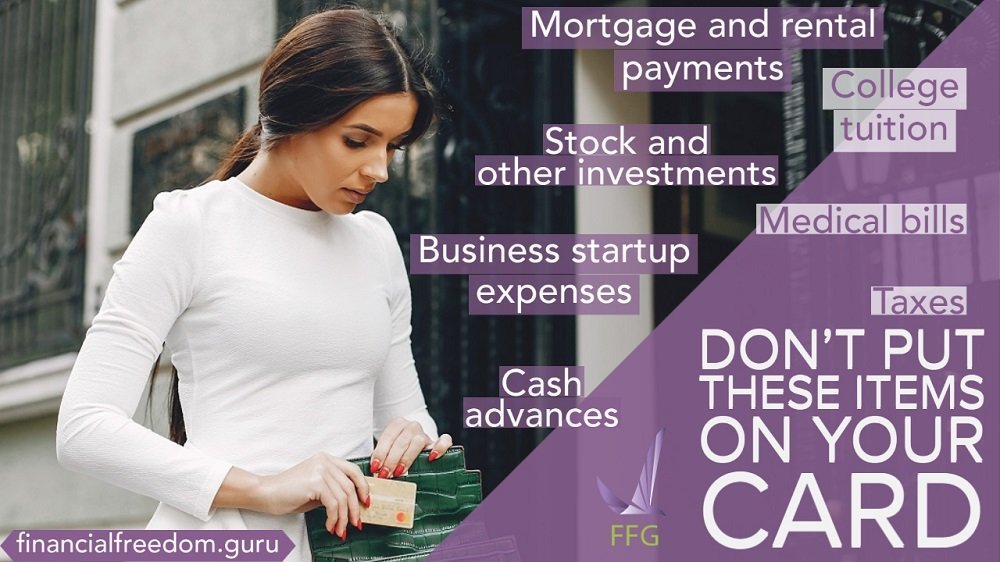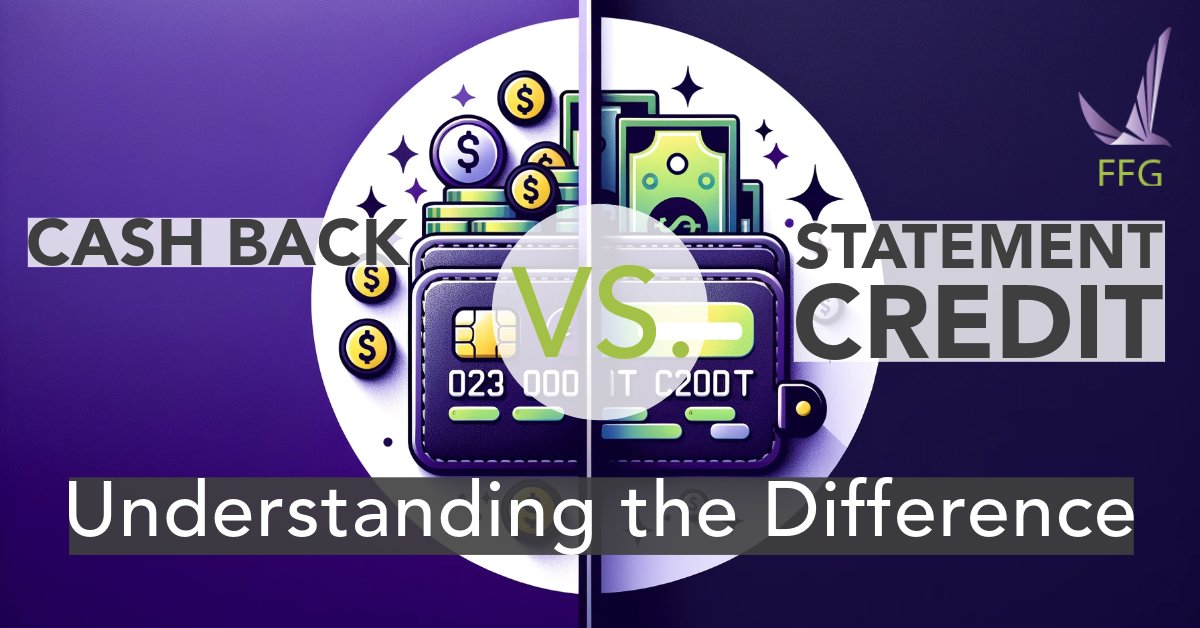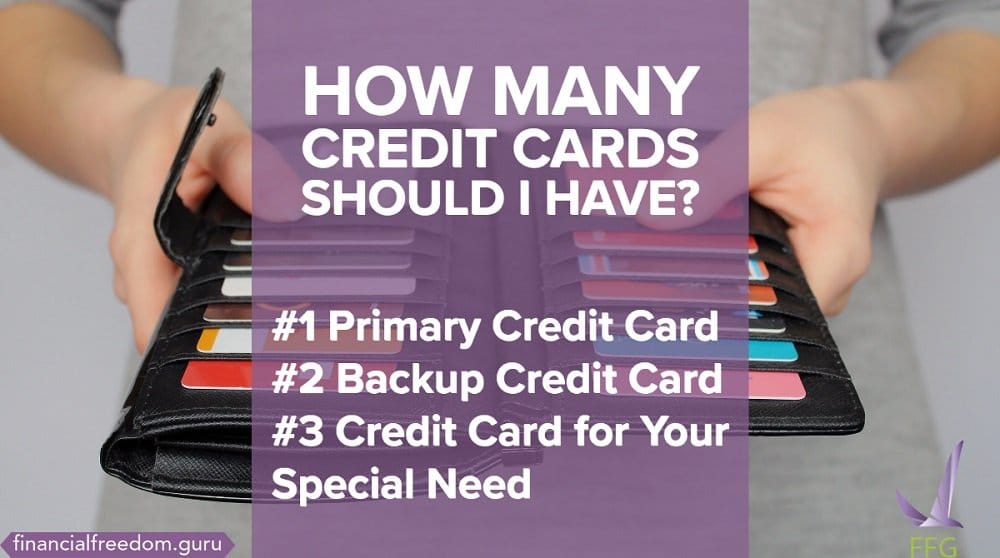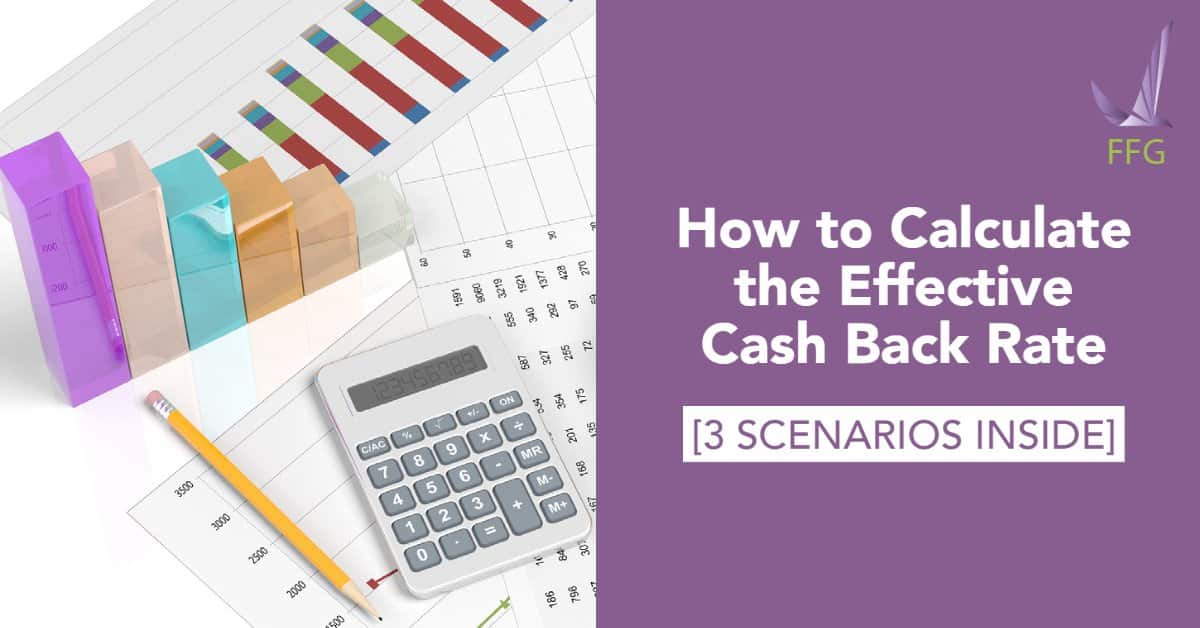Explore What NOT to Use a Credit Card For

Table of Contents
Updated: June 22, 2022
Paying by credit card can be a great idea. It’s convenient and carries less liability than using your debit card. It can help you build credit when you pay it off on time. Earning rewards make credit cards even better. Yet, there are things you should probably NEVER put on a card. Let’s explore what not to use a credit card for. By the end of this article, you should understand when paying by credit card can be a bad idea.
Mortgage and Rent Payments
Paying your mortgage with your credit card may sound like an excellent idea. Think of all the credit card rewards you can earn. You would be on the highest tier of the reward program in no time. There are a few issues here:
- Risk: if you for some reason can’t pay off your Credit Card in full at least once you will be effectively paying both Mortgage Interest and an extremely high Credit Card Interest.
- Utilization Ratio: the problem is that you’re putting a substantial monthly expense on your credit card. This sharply increases your credit card utilization and if you don’t have a high amount of Credit Available to you it will negatively impact your Credit Score.
- There are companies out there, that will allow you to pay your mortgage or rent via credit card to accumulate points. However, they charge a convenience fee of around 1%. Since you incur the risk of a big balance on your CC, you’d better be confident in your effective cashback from a Credit Card to justify both the 1% fee and risk.
Cash Advances
This is when you borrow money from your credit card account, usually as an ATM withdrawal. Regular credit card purchases incur interest after the billing due date. A cash advance generates interest immediately, and generally at a higher rate than your purchase interest rate. There is also a cash advance fee of the greater of $10 or 5% of the advance included.
Our advice: look for a card with a low interest rate for cash advances. More importantly, don’t take a cash advance.
Medical Bills
Medical bills are expensive. Putting them on your credit card makes it costlier by adding additional interest and fees on unpaid balances. Before you consider doing this, try exhausting every other available option. Contact the medical billing office and try to have the costs lowered. If that doesn’t work, consider asking them for a payment plan. You may be able to negotiate a 0% interest, fee-free payment plan with the hospital. This option will cost you a lot less than placing the bill on a credit card.
College Tuition
Don’t put your college tuition on your credit card unless you have a reliable paycheck and can manage the bill. College tuition is another significant expense that many customers are unable to pay off before the billing due date. Unlike student loans that defer interest until after graduation, credit card interest generates the day after the monthly due date. Schools add a 2-3% processing fee for credit card payments, which increases the bill by hundreds of dollars. Using a credit card to pay college tuition makes it even more costly.
Instead, you should exploit every financial opportunity you have. Ask the school’s office of financial assistance and see if you qualify for scholarships, grants, work-study programs or low-interest loans. Look to other sources to find non-traditional scholarships for which you may be eligible. Investigate your workplace’s tuition reimbursement program, and see if you, your school, and your degree of study are eligible.
Taxes
There is no legal reason why you can’t pay your taxes using a credit card. You shouldn’t pay your taxes with a credit card because of the convenience fee charged by the payment processing company. Many companies charge $3.00 or less to use your debit card to pay federal income taxes. With credit cards, you’ll still pay the flat rate, plus an additional fee (about 2%) of your tax payment. Property taxes are worse and can cost as much as 3% of your bill.
Business Startup Expenses
You have a great startup idea, but you need capital. With the accessibility of small business credit cards, you may think it’s a good idea to charge your startup expenses. Sounds good… except that most businesses don’t become profitable for several years. During that time, if you can’t pay off your monthly balances, you’re still liable for the debt plus high interest. Should the startup fold, you owe a lot of money you may not be able to pay back.
If you want a better solution, consider a small business loan or grant. The interest rates on loans are usually lower than on credit cards. Small business grants can have favorable financial terms. You can also try crowdfunding to raise your startup capital from friends, family, and other supporters.
Stock and Other Investments
These are financial vehicles that involve inherent risk. There is no guarantee that the stock value will increase from the initial investment. Paying money and interest to earn less principle than you started with potentially is a terrible strategy.
Down Payments of Any Kind for Big Ticket Items You Can’t Afford
There is a general rule of thumb when deciding if to buy something on credit. If you can’t pay it off by the billing due date, don’t charge it to a credit card. You may think it’s smart to use the credit card’s high credit limit for the charge. Instead, you now must pay off the card before interest is incurred.
If you’re tempted to use a 0% APR offer, you should do some math first. Calculate monthly payments by dividing the cost of the item by the number of months the 0% offer is active. (If you want to ensure you don’t miss the offer expiry date, reduce the number of months by one.) If you can’t afford the monthly payment, the item is too expensive. Maybe it’s a good thing anyway. Opening that new account would have temporarily dropped your credit score.
Follow Our Guidelines
Here are a few guidelines to help you decide whether you should put an expense on your credit card
- Risk: You don’t want to add expenses to your credit that make it difficult to pay off.
- Fees: Any payment that adds a percentage fee costs too much money, especially when the expense costs thousands.
- Utilization Ratio: make sure you don’t pay high balances on your credit cards to screw up your utilization ratio and credit score.





